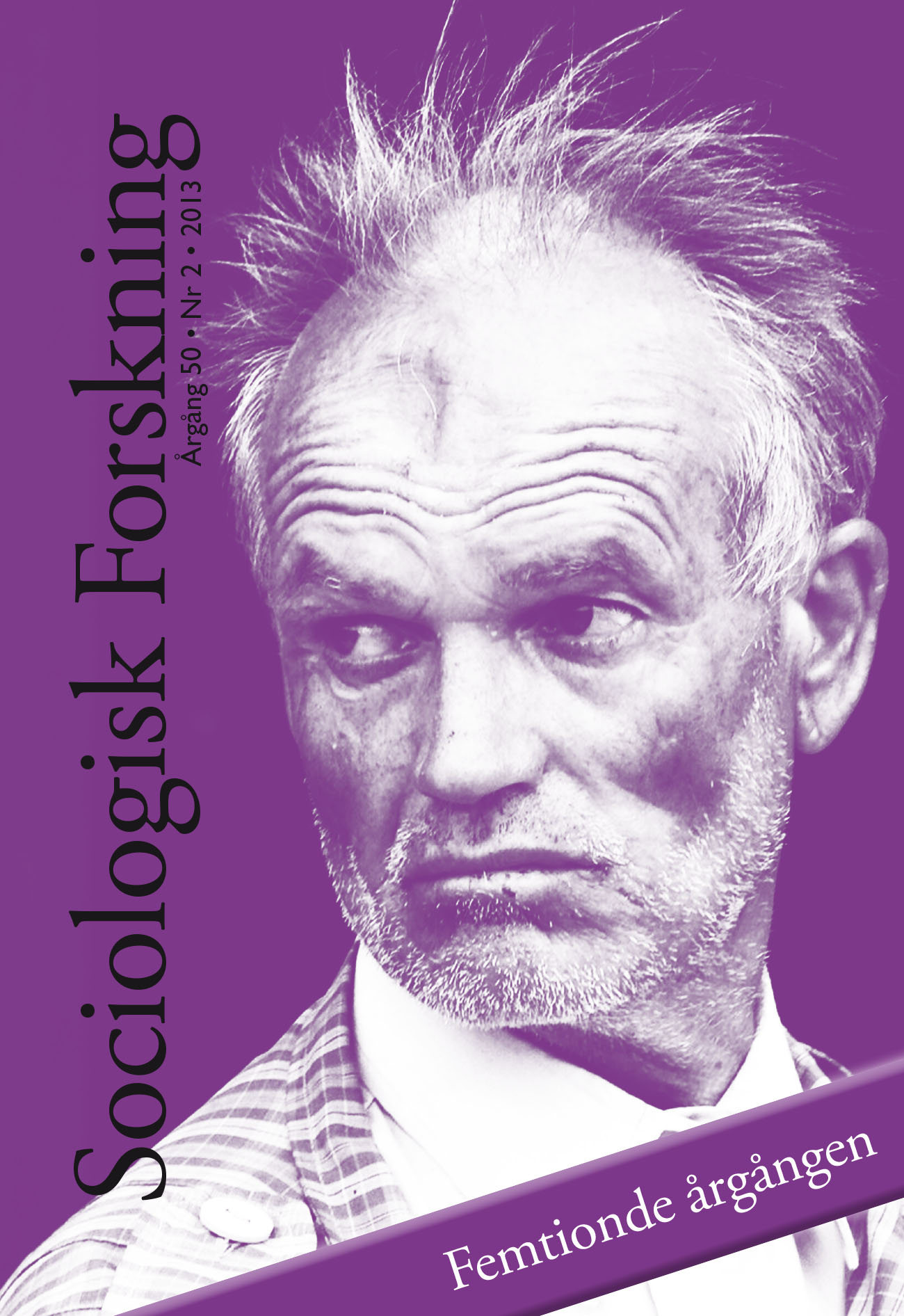En sociologisk förståelse av förlåtelse och försoning
DOI:
https://doi.org/10.37062/sf.50.18375Keywords:
forgiveness, reconciliation, shame and guilt, victim, perpetrator and actor.Abstract
Forgiveness and reconciliation in a sociological context
Are forgiveness and reconciliation left to the theologians to define or can these concepts also be genuine concepts in sociology? In spite of the fact that sociology and social psychology have a lot of research about relationship, interaction and groups, there is not much research about forgiveness and reconciliation. This article presents the understanding of how relations can be revived, if once broken, if using these conceptions. The discussion also includes the concepts of shame and guilt and even confidence, particularly in relations where you find victim and perpetrator. The discussion is developed in a perspective of symbolic interactionism with examples from sociological research about men´s violence against women and adults, especially fathers, abuse to their daughters. In this article the perpetrator feels guilt and the victim shame and the feeling of guilt makes the perpetrator to ask for forgiveness. When hate and hard feelings have come to an end, the reconciliation can occur as a consequence of the forgiveness.
Downloads
Published
How to Cite
Issue
Section
License
All content in Sociologisk Forskning is published with immediate open access, under the Creative Commons license CC BY-NC-ND 4.0.
All content may be read, downloaded, shared and printed for non-commercial purposes, free and without fees. Contents may not be altered. When content is reused, author, source and a link to the copyright licence must be provided. The author retains copyright to their content. No publication fees are charged.





